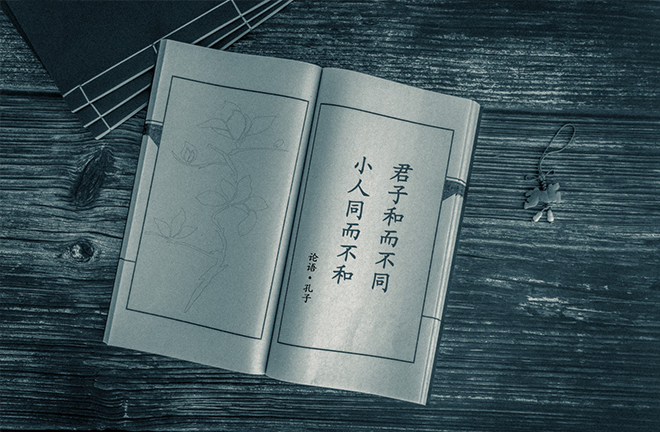Academics explore contemporary value of Junzi culture

Junzi culture is a cultural gene deeply imbedded in the Chinese nation. Photo: TUCHONG
On Aug. 17–18, the Ninth National Forum on Junzi Culture was held in Xi’an, northwest China’s Shaanxi Province, under the theme of “Junzi Culture and Building a Modern Chinese Civilization.” Scholars in attendance focused on the intrinsic relationships between Junzi culture and the construction of a modern Chinese civilization, while examining its contemporary value.
The term “Junzi” refers to a person whose humane conduct sets them apart as a moral exemplar. Junzi culture is a cultural gene deeply embedded in the Chinese nation—a cultural phenomenon that has profoundly influenced the mindset, value orientations, life attitudes, and even empirical habits of the Chinese people. It represents the highest spiritual aspiration of the Chinese nation and stands as a distinctive intellectual icon of Chinese civilization.
According to Sun Qingwei, president of Northwest University (NWU), Junzi culture embodies profound spiritual connotations and moral principles, representing the Chinese nation’s deep contemplation and assiduous pursuit of an ideal character. It is of great significance to advancing the construction and development of a modern Chinese civilization.
Junzi culture permeates every aspect of daily life in China, influencing everything from family traditions and teachings to school education, as well as to adages and proverbs, said Qian Niansun, a research fellow from the Anhui Academy of Social Sciences.
Chinese culture excels at “expressing aspirations through objects,” using the characteristics of artifacts, plants, and natural landscapes to vividly analogize and reveal the essence and traits of the Junzi personality from multiple angles, Qian said. This has not only facilitated the evolution and expansion of the Junzi concept, but also substantively expanded and enhanced the influence and appeal of Junzi culture.
The Junzi theory in Confucianism is deeply intertwined with the process of personal growth in Chinese culture. Luo Anxian, a professor of philosophy from Renmin University of China, explained that in Confucian thought, a person is seen as an unfinished work, an existence that is open to continuous development. The core of Confucian doctrine is centered on the cultivation of the self. This idea can be understood from two perspectives: socially, it seeks to establish the norms that ensure a well-ordered society; personally, it aims to provide individuals with moral guidance for settling down and getting on with their own pursuits. These two aspects together represent the Confucian ideal of “nei sheng wai wang,” or inner sagehood and outer kingliness, Luo said.
Junzi culture has not only shaped the ethos of Chinese civilization, but also laid a solid humanistic foundation for building a modern Chinese civilization. Lu Dong, former vice chairman of the Shaanxi Provincial Committee of the Chinese People’s Political Consultative Conference, emphasized that Junzi culture provides a crucial basis for Chinese personality theory. He argued that it should not be regarded as an esoteric field or final boundary for humanity, but rather as a cultural and spiritual nourishment pivotal for being humane, and an essential component for the self-preservation of human civilization.
Xie Yangju, deputy director of the Institute of Chinese Thoughts and Culture at the NWU, noted that Junzi culture represents the cream of fine traditional Chinese culture, playing an immense and enduring role in the moral and cultural development in ancient Chinese society and will continue to serve as a beacon and pillar in the great journey of building a modern Chinese civilization.
“From 1914, when renowned modern Chinese scholar Liang Qichao delivered a speech titled ‘Junzi’ at Tsinghua University, to the advocacy for Junzi culture in contemporary times, it is evident that Junzi culture possesses core vitality that remains crucial to the development of modern society,” said Cheng Gang, deputy director of the national cultural quality education base for college students at Tsinghua University.
Li Chunlin, former deputy editor-in-chief of Guangming Daily, pointed out that Junzi culture is an important component of Chinese moral traditions and cultural heritage. It is timeless and all-encompassing. Cultivating hearts and minds through Junzi culture to promote the construction of a modern Chinese civilization bodes a promising future.
The forum was sponsored by the Institute of Chinese Thoughts and Culture at the NWU, and organized by the Department of History at Tsinghua University, the Shaanxi Provincial Society of Confucianism, and other institutions.
Edited by CHEN MIRONG
